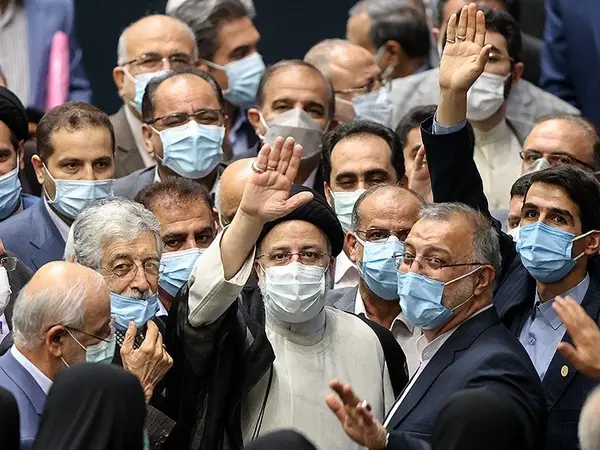Relations between Iran's president and parliament are not as smooth as many had expected in June 2021 when conservatives came to dominate both institutions.
According To Jahan-e Sanaat newspaper in Tehran, disagreements between parliament (Majles) and President Ebrahim Raisi are mainly in four areas: A controversial petrochemical plant, a bill to restrict internet access, discontinuing cheap dollars for essential imports and the motions planned by a sizeable group of lawmakers to unseat Raisi's economic ministers.
The petrochemical plant, that is still being built despite strong opposition by Raisi and his Interior Minister Ahmad Vahidi, is a project that has faced strong opposition by locals and environmentalists. The location in northern Iran by the Caspian Sea is near a natural reserve which is ecologically vulnerable, and the area is too densely populated for a project whose first outcome for the region will be pollution.
Widespread opposition to the project has reached a sensitive point as media has revealed that the man behind the project is allegedly a corrupt individual who has borrowed money from state banks under two different identities and has refused to pay back a $50-million loan after many years.
The only top official who has supported the project in public is Majles Speaker Mohammad Bagher Ghalibaf who is now quietly at loggerheads with Raisi over the issue.
The second area of disagreement is a bill to restrict internet access which particularly targets foreign social media platforms. The bill is ironically called "The Protection Bill" as its advocates claim that is meant to protect users from the perils of social media.
Raisi opposes the bill mainly because he knows that there are 1.7 million small businesses active on Instagram that provide jobs to around nine million Iranians. Banning access to social media will add those nine million to millions of other hungry bellies Raisi has to feed.
Some have said that Raisi also knows the country still lacks the infrastructure to replace the Internet with a local intranet network. So, he fears that the state’s administrative, financial and health systems as well as many public services might collapse and create even more problems for a government that already faces a host of hard issues.
The third disagreement between the Majles and the administration is the preferential rate of 42,000 rials per US dollar allocated for importing essential food and medicine. Lawmakers, who have come on board claiming to be revolutionaries, believe this is the only area they can have an impact by cutting a major source of potential corruption by individuals who have misused the cheap dollars to make profits in businesses that have nothing to do with essential imports.
Here too, Raisi knows that cutting off the subsidy will further increase the cost of living and will land his administration in trouble by creating the risk of street protests.
Finally, is the motion planned by over 50 of parliament's lawmakers to impeach Raisi's economic ministers including Industry Minister Reza Fatemi Amin and Labor Minister Hojjat Abdolmaleki who are believed to be his most vulnerable aides. Political circles in Tehran seem to be quite certain that the industry minister will be leaving the administration during the coming weeks.
These are only the main outstanding problems between the Majles and Raisi. Other problems such as the claim by some lawmakers that the administration has kept them in the dark about the nuclear negotiations also make matters worse, if lawmakers conclude that Raisi is in a weak position.
